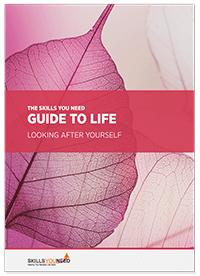How to Sleep - The Importance of Sleep
See also: What is Sleep?Although our knowledge of exactly why we sleep is lacking, we do know a lot about the effects of not sleeping, too little sleep and/or low quality sleep.
Our overall quality of life can be seriously affected by lack of quality sleep and this can heavily influence how we behave and perform, how we feel and even how we look.
This page examines factors that encourage good sleep (sleep hygiene), the dangers of insufficient quality sleep, and factors and triggers that can make us feel sleepy or lethargic outside of normal sleeping times.
Promoting Good 'Sleep Hygiene'
‘Sleep hygiene’ is the term used to describe the environmental and behavioural factors that may affect our ability to fall asleep and gain a good quality of sleep.
People who suffer from insomnia (inability to sleep or stay asleep) may work hard on their sleep hygiene in an attempt to control the disorder, however, many of us can benefit from good sleep hygiene regardless of whether we suffer from a sleep disorder or not.
In order to get to sleep and stay asleep during the night it is important to relax both your body and mind. You may find the following tips helpful.
Sleep hygiene tips:
Avoid big meals before bedtime. Although eating a large meal can make us feel tired, it can also make us feel uncomfortable and therefore prevent us from falling asleep or staying asleep.
Avoid caffeine and alcohol for a least a couple of hours before bedtime, as both caffeine and alcohol are stimulants and may prevent sleep. If you are a smoker then avoid smoking for at least an hour before bedtime, as nicotine is also a stimulant.
Maintain a healthy sleep environment. Ideally you should aim for a quiet, dark, cool and comfortable room in which to sleep.
Stick to a routine and make enough time for sleep. Although everybody is different, most adults need between 7 and 9 hours of sleep in each 24 hour period. Try to keep bedtimes and wake-up times consistent and allow enough time for your sleep. If you feel tired in the day then you are possibly not allowing enough time to sleep at night.
Avoid watching TV, using a computer, tablet or similar device immediately before bed. Try reading something easy, or listening to relaxing music for 30 minutes before you intend to sleep. (See Music Therapy for more)
Take a warm bath early in the evening. Although a bath can relax you do not take a hot bath immediately before bedtime - as your body needs to be cool to fall asleep and remain asleep. Take a relaxing bath a few hours before bedtime so that your body has time to cool down.
Take regular exercise in the daytime, but not close to sleep-time. Physical exercise can help promote good sleep as well as many other benefits to health and well-being. See our page, The Importance of Exercise for more information.
Stay cool during the night. Sleep with a window open or use a fan or a lighter duvet/comforter or blanket; your body needs to be cool to sleep effectively.
Find out what works for you. Experiment with your sleep hygiene and see if you can improve your sleep.
If you regularly have problems falling asleep or wake frequently in the night, seek professional advice from your doctor. Sleep disorders are not uncommon and should not be left undiagnosed.
Use the Epworth Sleepiness Scale to assess your levels of daytime sleepiness.
 Volvo's tiredness warning system detects driver fatigue based on driving style.
Volvo's tiredness warning system detects driver fatigue based on driving style.Lack of Sleep – Dangers and Concerns
You may be aware of the dangers of driving and operating machinery whilst tired, but tiredness and lack of sleep can be dangerous for lots of other reasons.
This news story from the BBC (2012) may make you smile, but it highlights how seriously tiredness can affect people: Scottish driver falls asleep and hits warning sign about tiredness while driving.
Tiredness Can Kill: The Dangers of Too Little Sleep
Generally you are more likely to feel irritable, grumpy and have a shorter temper when tired. Lack of sleep can make us more emotional, which can have a negative effect on our relationships with others. Visit our Interpersonal Skills section and see What is Anger?.
Reaction times are reduced when we’re tired – this makes driving and operating machinery more dangerous. In the UK it is estimated that as many as 1 in 5 of all motor traffic accidents are caused by tiredness or falling asleep at the wheel.
Lack of sleep affects our ability to be creative and innovative, and problem-solving and decision making skills are less effective.
Specifically brain (cognitive) functions are reduced, including the ability to concentrate and pay attention. Lack of sleep can also cause memory issues.
Insufficient sleep can lead to a greater appetite (quality sleep helps the body regulate levels of ghrelin and leptin, hormones that are linked to appetite and feelings of hunger) which, in turn, can increase the likelihood of becoming overweight or obese. This increases the risk of higher cholesterol levels, developing diabetes and heart problems. A recent Norwegian study concluded that “People who had trouble falling asleep and remaining asleep each night were three times more likely to develop heart failure than those who reported no trouble sleeping.” (European Heart Journal)
A decrease in exercise. Without sleep you are less likely to want to engage in physical activity. This can exacerbate problems with body weight and heart disease.
Lack of sufficient sleep makes us more susceptible to stress, and more likely to suffer from depression and other serious mental health complaints. See our page: What is Stress?
People who do not get enough sleep may drink more caffeinated drinks (coffee, tea etc.) to reduce the effects of tiredness. Caffeine can be dangerous in higher quantities, raising blood pressure and pulse and therefore adding strain to the heart.
Lack of sleep affects your immune system, making you more prone to catching infections such as colds. It can also make immunisations less effective, giving you a ‘double whammy’ from infections.
Lack of sleep affects your body’s ability to regulate blood glucose levels. Studies have shown that adults deprived of enough sleep for just a few nights are unable to fully regulate their blood glucose. Some even go into a pre-diabetic state.
Lack of sleep affects your body’s ability to regulate appetite, which can cause obesity. People who have not had enough sleep seem to produce more of the hormone associated with feeling hungry, and less of the hormone that makes people feel full. This can therefore lead to over-eating. Interestingly, obese people are also more likely to have sleep disorders such as obstructive sleep apnoea, where people stop breathing during sleep.
Shift workers with varying sleep patterns are more likely to become ill
Still sceptical? Shift work is associated with a range of health problems. This is thought likely to be related to having disturbed sleep patterns. For example, shift workers are:
- More likely to report ‘fair or bad’ general health than the norm;
- At increased risk of obesity and diabetes;
- More likely to take time off sick; and
- More likely to have a ‘limiting long-standing illness’; Than people who do not work shifts.
From the list above we can clearly see that sleep is a vital function for our health and well-being. We operate best when we are refreshed and rejuvenated after a good night’s sleep.
Triggers for Tiredness and Sleep
There are numerous environmental and circumstantial reasons why we may feel tired other than at bedtime. Some of the most common include:
Insufficient sleep the previous night. This may sound obvious but if you regularly feel tired in the daytime then you may well not be getting your optimum amount of sleep at night so try to increase the amount of time you sleep. It is also possible you suffer from a sleep disorder.
After eating a large meal. This is usually a natural response and lasts only for a relatively short time. Excessive tiredness after eating could indicate a more serious dietary problem; some people have allergies to certain foods that can make them feel tired after eating. You should see a doctor if you think you may have an undiagnosed food allergy.
Natural changes in body rhythm mean that we feel more tired and have an increased desire to sleep between the hours of Midnight and 6am but also 2pm to 4pm.
Certain medications, both prescribed and over-the-counter, can cause sleepiness. Always read the label and check for side effects, especially if you need to drive or operate machinery. Some illicit drugs can also cause immediate sleepiness or lead to delayed feelings of lethargy.
Alcohol can cause tiredness generally, however, studies have shown that alcohol taken at lunchtime or in the afternoon can be twice as likely to cause sleepiness as alcohol consumed in the evenings.
Boring situations can make us feel lethargic; this is especially the case in the afternoon and in warmer darker environments. Examples include business meetings, classes or lectures and visits to the cinema or theatre – any time that the body can relax and the mind drifts off.
Bathing can increase tiredness, especially taking a hot bath. Hot water lowers the blood pressure and relaxes muscles, which increases feelings of tiredness.
Physical exercise can make us feel sleepy, although this is usually down to excessive or new exercise. As the body becomes fitter, and therefore less exerted, tiredness after exercise reduces and can be replaced by a feeling of rejuvenation.
Hormonal changes can affect how sleepy we feel, and also how well we sleep. For example, men can become sleepy after sex, due to a drop in the male hormone testosterone which causes a lack of energy. Women can feel more or less sleepy at different stages during their menstrual cycle. Women also often find that their ability to sleep is affected during pregnancy and menopause because of changing levels of the female hormones oestrogen and progesterone (see box).
Sleep and menopause
Interrupted sleep is often an issue during perimenopause, and many perimenopausal women also report that they are more tired. This is partly because symptoms of menopause can disturb sleep (needing to get up in the night to urinate, or experiencing night sweats). However, it is also the result of hormonal changes, and particularly the drop in progesterone.
If this affects you, it is worth talking to your doctor, because there are products that may help relieve either the symptoms, or the hormonal changes.
Further Reading from Skills You Need
The Skills You Need Guide to Life: Looking After Yourself
Based on some of our most popular content, this eBook will help you to live a happier, healthier and more productive life.
Learn how to look after your body and mind: the fundamental first steps to personal development.
This eBook, now in its second edition, with new and revised content, is designed to make life both easier and better.
Assess your levels of daytime sleepiness
Epworth Sleepiness Scale
Continue to:
What is Sleep?
Babies and Sleep


